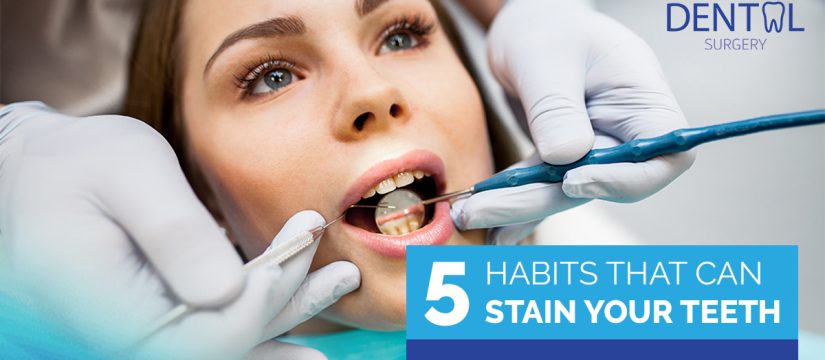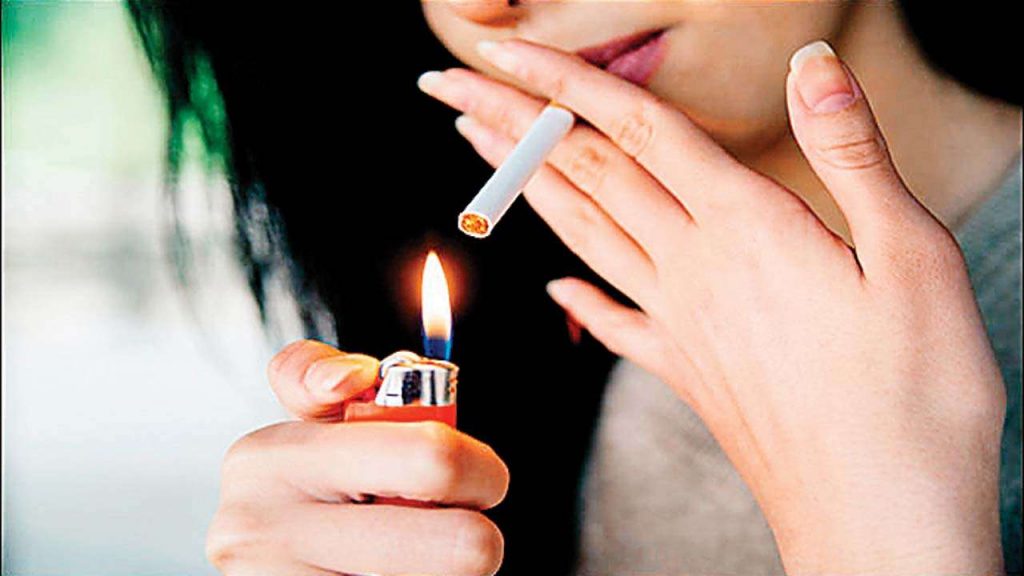
It’s fair to say that a bright and healthy smile really counts when it comes to making first impressions.
The state of one’s teeth at first glance can speak volumes about a person, such as priority of oral hygiene, standard of personal grooming, or the importance of a healthy lifestyle.
Research even suggests that sparkling white teeth is linked to increased confidence, commonly associated with the image of success, health, influence, and attraction.
Let’s face it – who doesn’t want to feel better about themselves?
Before you spend money on another teeth whitening consultation, it’s important to first understand some common habits that are staining your teeth daily – and the chances are, you’re doing one of them (perhaps, a few..).
Teeth whitening, when done properly by an experienced dentist, is extremely beneficial; however, maintaining this amidst some bad habits can be challenging.
Here are 5 habits that can stain your teeth, and how to avoid them:
Drinking teeth-staining beverages
Many of the most common beverages you are drinking are actually staining your teeth without proper care and diligence.
Tea and coffee, arguably one of the most common beverages, are culprits when it comes to staining teeth. Tea and coffee are filled with tannins, which are organic compounds found in plants that cause its dark colour.
Over time, tannins build up and bind on the tooth enamel.
If you enjoy a social time out, alcoholic beverages such as beer and wine, can also stain your pearly whites with its high acidity content. If you enjoy drinking soft drinks, not only will the acidity harm your teeth, but the dyes used to colour the soda.
The answer however, is not to refrain from drinking these.
If you are a tea or coffee drinker, having milk with your drink can decrease the ability of tannins staining your teeth. For other beverages, ensuring that you drink water regularly in between drinks will ensure that your teeth are rinsed regularly.
Eating teeth-staining foods
Many of the foods that you are eating can leave a lasting impression on your teeth – though, not quite the impression you want.
You’d be surprised, but even foods that you would consider ‘healthy’ are colouring your teeth – such berries, grapes, tomato-based sauces, even the vinegars in your salad.
Other foods include anything acidic, sugary, dark coloured plant-based food such as beetroot, and spices such as curry and tumeric can have a significant impact on your teeth.
Again, food can’t and shouldn’t be avoided – especially if it’s good for your health.
Ensuring that you are regularly drinking water will rinse your teeth from anything that’s likely to stick to your tooth enamel, as well as maintaining a high standard of oral hygiene.
Smoking
Smoking is arguably one of the highest causes of teeth staining, resulting from the nicotine and tar found in tobacco products.
If that’s not enough of a reason to quit, smoking is one of the most common risk factors associated with many oral health problems, such as gum disease and oral cancer. Research suggests that 75% of people diagnosed with oral cancer are smokers.
Smoking also reduces the ability for the body to resist oral infections, and can significantly impair the healing process.
If you are a smoker, it’s vitally important to visit your dentist regularly to ensure that your teeth, gums and overall oral health is in good shape, and that tests for oral cancer are conducted on a regular basis.
If you are considering quitting smoking, getting in touch with Quitline would be a great first step.
Not drinking enough water
As briefly touched on in the last few points, drinking water regularly throughout the day can vastly reduce your chances of stained teeth.
As an added bonus, keeping well hydrated will do wonders to your overall oral health (The Blue Tree Clinic).
Eating and drinking throughout the day can leave certain substances and traces on your teeth, such as food debris. Drinking plenty of water will ensure that your teeth are rinsed regularly.
Water also stimulates the production of saliva, which is not only important for proper digestion, but contains minerals and proteins that are important in fighting tooth decay by fighting enamel-eating acids.

Neglecting proper oral hygiene
This may seem like an obvious point; however many people are not taking proper, sustainable care to their teeth.
It is recommended that you brush and floss your teeth 2 to 3 times daily, in order to remove plaque from your teeth, and maintain the health of your teeth and gums.
Part of a proper oral hygiene process must also include regular cleans and check-ups from an experienced dentist. How regular this appointment should be can be different upon circumstances, so it’s best to check with your dentist as to how regular this should be to maintain optimum oral health.
A happy and healthy smile can be achieved when your teeth are properly cared for and looked after, and with experienced assistance.
Book your next dental check-up with Kooweerup Dental today to ensure long and sustainable health for your teeth, gums and oral health.


